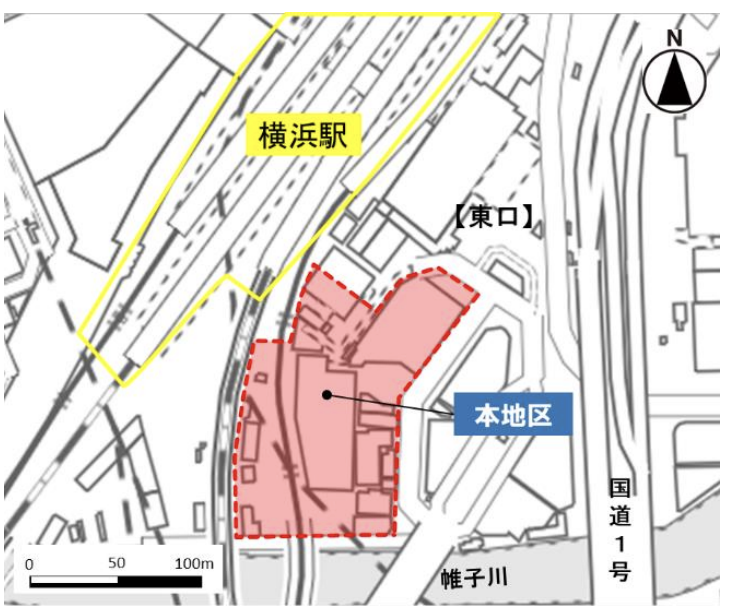Real estate investment is attracting attention as a means for wealthy individuals to protect and increase their assets. While there are various investment options such as stocks and bonds, real estate has become a popular investment vehicle for high-net-worth individuals because of its stable income potential and resistance to inflation. In fact, many of INA's high net worth clients have incorporated real estate investment into their asset strategies and have realized its usefulness. So why is real estate investment advantageous for asset building among the wealthy? This article explains the multifaceted benefits of real estate investment and explores its strengths in comparison to other financial assets. It also touches on the positioning of real estate utilization according to the life stages and needs of high-net-worth individuals, and concludes with the importance of selecting the right partner for successful asset building and INA's strengths.
Reasons why real estate investment is advantageous for asset building of high-net-worth individuals
Stable income and maintenance of asset value
One of the most attractive features of real estate investment is that it provides stable income over the long term. If you own real estate for rent, you can earn a stable income (income gain) in the form of monthly rental income as long as you have tenants. Compared to dividends from stocks, this regular income is less subject to fluctuations caused by the economy or corporate performance, and can be a significant source of cash flow, especially if you own multiple properties. In addition, real estate has the characteristic of low risk of price fluctuations in asset values. While the price of stocks can fluctuate wildly in a single day due to corporate scandals or market fluctuations, real estate is usually not subject to sudden overnight price declines, although it can be affected moderately by economic fluctuations and other factors. As a real asset, real estate is supported by its physical value, and if a property is properly managed and demand is expected, it is easy to maintain a stable value over the long term. In addition, INA has a department specializing in rental management services that manages many properties on behalf of owners, and handles everything from tenant recruitment and rent collection to troubleshooting on behalf of owners. INA operates its rental management business mainly in the Kanto and Kansai regions, and through its extensive experience with a large number of managed properties, INA can help you maintain stable property values and revenues.
Inflation-Resistant Assets
Real estate is "inflation-resistant," meaning that its asset value does not diminish easily during periods of inflation. The market value of real estate tends to increase as prices rise, and the appraised value of land and buildings held in the portfolio may increase in tandem. On the other hand, cash and fixed-rate bonds, for example, lose their real purchasing power when inflation rises. For example, since the principal amount at maturity and interest rate of bonds are fixed in advance, it is difficult for their prices to rise during periods of rising prices, and their real asset value declines when inflation rises. In this regard, real estate investment is an investment in physical assets and is an effective means of reducing the risk of asset value declines during periods of inflation. In addition, rental income from real estate tends to rise relatively easily as rent levels are revised in the future according to economic conditions and supply and demand. In other words, in an inflationary environment, real estate tends to increase real yields not only in terms of maintaining asset value but also in terms of earnings, and it can serve as an inflation hedge (inflation protection) in the asset portfolios of wealthy individuals.
Advantageous for inheritance protection
Inheritance measures are important for high-net-worth individuals to ensure the smooth transfer of their assets to the next generation. Real estate investment has a great advantage in terms of inheritance countermeasures. While cash, deposits, and listed stocks are valued at almost market value (face value) at the time of inheritance, the inheritance tax assessed value of real estate is often lower than the actual value, resulting in the potential for inheritance tax savings. For example, the assessed value of land is generally about 80% of the posted land value based on roadside land price. Furthermore, if the land is leased to others as rental property, the assessed value is reduced by the percentage of land leasehold and the percentage of house leasehold as "land with leasehold interest". In this way, real estate tends to have a lower assessed value than cash, etc., and is effective in reducing the taxable amount of inheritance tax. In addition, there are also special exceptions, such as small building lots, which can significantly reduce the assessed value of land for inheritance tax purposes if certain requirements are met, making it easier for wealthy individuals to benefit from inheritance tax measures using real estate. In addition, real estate is also advantageous in practical terms in that it is easier to divide the estate at the time of inheritance if it is held in multiple properties. By owning multiple properties, it is easier to divide assets among heirs and create a succession plan tailored to the needs of each. Of course, professional inheritance planning is required, but INA also provides asset succession consulting services for high-net-worth clients utilizing real estate, and will work with tax accountants and attorneys to support the formulation of the optimal plan.
Asset Expansion through the Leverage Effect
The "leverage effect" refers to the effect of being able to make large investments and expand the size of one's assets with a small amount of one's own capital, just like the principle of leverage. In real estate investment, this leverage effect can be obtained by utilizing loans from financial institutions. For example, if you purchase a property worth 100 million yen with only your own funds, and if you purchase a property worth 500 million yen by borrowing 400 million yen from a financial institution in addition to 100 million yen of your own funds, the latter will yield a much larger annual rent income than the former, even at the same yield. In many cases, even after deducting the interest cost of the loan, the amount of income remaining on hand is higher than in the case of self-financing alone, and this difference can be said to be the profit from leverage. Even wealthy individuals with strong financial resources are pursuing a strategy of increasing the efficiency of their own funds and pursuing greater returns by daring to use loans. It is also important to note that by leaving some leeway in their own funds, they have the flexibility to allocate their funds to other investment projects at the same time. INA also supports clients who are considering real estate investment by introducing them to financial institutions and arranging loans, and we can help them procure advantageous financing by utilizing our extensive network. We can help you procure advantageous financing by utilizing our extensive network.
Tax Benefits (Tax Reduction)
Tax benefits and tax-saving effects are also an important aspect of real estate investment. First of all, with regard to income and inhabitant taxes, if the income and expenses from real estate rental operations result in a loss on the books due to depreciation and amortization, you may be able to reduce your income and inhabitant tax burden by adding up other income and expenses. Japan's income tax system is a progressive taxation system (excessively progressive tax rate), with higher tax rates applied to higher income earners. Therefore, if real estate income can be reduced through depreciation and various expenses from real estate investments, and taxable income can be aggregated with business income and employment income from the main business to reduce taxable income, the higher income bracket can enjoy greater tax saving benefits. Specifically, depreciation of rental properties, interest on loans, fire insurance premiums, management fees, and repair expenses can be recorded as necessary expenses, and if real estate income after deducting these expenses from rental income is in the red, the amount of the deficit can be deducted from other income. This allows you to reduce your annual income and inhabitant taxes and increase your cash flow. It is important to be careful about intentionally posting deficits, however, and it is important to plan strategies from a long-term perspective, taking into account the tax burden on future capital gains from sales and the impact on loan evaluations from financial institutions. Another tax benefit is the preferential tax treatment for real estate transactions. There are several systems in place to reduce the tax burden on real estate, such as a reduced transfer income tax rate when real estate held for a long time is sold (preferential tax rate if held for five years or more) and a deduction for gains on sales of residential property that meets certain conditions (the so-called 30 million yen special deduction). INA works closely with real estate investment tax specialists to assist clients in developing tax strategies.
Comparison with other investment products (stocks, bonds, etc.)
In addition to real estate, there are many other options for asset management, including stocks, bonds, mutual funds, and cash deposits. Each has its own advantages and disadvantages, but real estate offers unique strengths compared to these traditional financial assets.
First, in comparison to stocks, there is a marked difference in risk characteristics. While investing in stocks offers the attraction of price appreciation and dividends, it also carries a high risk of price fluctuation, and the value of assets can change significantly in a short period of time. The risk of a sharp drop in stock prices due to specific corporate performance or market news cannot be ignored by high-net-worth individuals. On the other hand, real estate is a stable asset suitable for long-term holdings due to its relatively low price volatility as mentioned above. In addition, unlike stocks, real estate is, in principle, resistant to loss of principal. In the extreme case of stocks, there is a risk that the value of stocks may fall to zero due to corporate bankruptcy, but land and buildings, which are real assets, are unlikely to become worthless and retain their asset value in some form. Of course, real estate also has a weakness in that it is inferior to stocks in terms of liquidity (ease of sale), but in many cases, long-term value preservation and stable income are more important than short-term liquidity in asset building for wealthy individuals.
In comparison with bonds, real estate is superior in terms of income gains and inflation resistance. Bonds such as government bonds and corporate bonds are called safe assets because their principal and interest are fixed, but their yields are fixed and there is a risk of diminishing value due to inflation. Under the low interest rates of recent years, it is difficult to significantly increase assets with interest income from bonds alone, and the real yield declines during periods of inflation. On the other hand, real estate investments provide income in the form of rents, and both asset values and rents are expected to increase during times of inflation.
In comparison to cash deposits, needless to say, they are more vulnerable to inflation. Even if you hold a huge amount of money in a chest of drawers or bank deposits, if prices rise, the real value of your assets will slip away. Wealthier households have adopted a strategy of maintaining their purchasing power by investing a certain percentage of their assets in physical assets such as real estate and gold as a countermeasure against inflation. Real estate is the most profitable of these assets, and the difference between real estate and idle cash is clear: real estate not only preserves value, but the asset itself generates cash.
As described above, compared to other major investment products, real estate has the advantages of "low price fluctuation risk," "strength against inflation," "stable income gains," and "ability to preserve principal as a real asset," making it uniquely valuable in the asset portfolios of wealthy individuals. However, it goes without saying that real estate investment also involves individual property risks (vacancy risk, disaster risk, etc.) and liquidity risk, so it is desirable to appropriately diversify and combine real estate investment with other assets such as stocks and bonds. It is important to use real estate as a complement to other assets in a comprehensive asset strategy.
Real estate strategies tailored to the life stages of high-net-worth individuals
The purpose and role of real estate investment in asset building for high-net-worth individuals differ depending on their life stage and asset situation. Here, we will consider the positioning of real estate investment along the typical life stages of high-net-worth individuals.
Working-age and build-up phase (asset expansion phase): For HNWIs who are actively increasing their assets, such as business owners and high-income professionals, real estate investment can be an engine for asset expansion through leverage. They can dramatically expand their asset size by obtaining loans backed by ample cash flow and acquiring large income-producing properties. Since risk tolerance is high during this period, taking on relatively risky but high-return properties such as a new condominium building or a commercial building is also an option. INA provides clients in this period of asset expansion with information on highly profitable properties based on analysis of market trends and exit strategies for future sales. INA assists clients in this period of asset growth by providing information on profitable properties based on analysis of market trends and advising on exit strategies with a view to future sales.
Mature and Stable Management Phase (Asset Protection and Income Securing Phase): For high-net-worth individuals who have built a certain level of wealth with sufficiently large assets, the next challenge is how to secure stable income while safely protecting those assets. Real estate is the ideal asset management vehicle for this phase, as it is highly stable in value and yields higher income gains than bonds. For example, if you own several rental properties with loan repayment completed with cash on hand, you can cover your daily living and business fixed costs only with income gains, thus realizing "asset flowing" (turning stock into flow). In addition, from the perspective of overall asset risk diversification, since real estate tends to move in price differently from stock market fluctuations, incorporating real assets into a securities-centered portfolio enhances the diversification effect and improves overall stability. In this way, mature high-net-worth individuals often position real estate investment as a pillar of solid management and asset preservation, and INA has many channels for purchasing and introducing properties that meet the needs of high-net-worth clients, such as luxury rental housing and commercial properties in prime locations, providing investment opportunities suitable for long-term stable management.
Preparation for succession and post-retirement (asset succession and generational change): For high-net-worth individuals who have entered their senior years and are beginning to think about passing on their assets to the next generation, real estate can be a trump card for smooth asset succession and inheritance tax planning. As mentioned above, real estate tends to be assessed lower for inheritance tax purposes than cash. In addition, dividing the estate into multiple properties makes it easier to divide the estate and ensure an amicable succession among family members. While it is important to secure funds for your own life after retirement, rental income from rental real estate will provide a stable source of monthly income without having to rely on a pension or business income, and will support you in living a comfortable and leisurely life. Real estate investment can also serve as a "private pension fund for the wealthy. INA is ready to provide highly specialized advice on corporate ownership of real estate and the establishment of trusts, and we are able to provide tailor-made solutions for high-net-worth individuals and their families. INA offers customized asset succession plans tailored to each family's unique circumstances.
Selecting the right partner for successful real estate investment and INA's strengths
In order to maximize the benefits of real estate investment and control risks appropriately for successful asset building, it is essential to have the support of a trusted professional. Wealthy real estate investors have a variety of options, from new and used single-family properties to multi-family condominiums. Property selection must be based on careful research, with a trusted real estate company as a partner based on an understanding of the differences in the characteristics of each property. An experienced partner will be able to provide insight into market trends and the potential of the property, and together they will build the best plan to meet the investor's needs.
INA has been chosen by high net worth clients as just such a "trusted real estate partner." INA is a full-service real estate company that focuses on high-end rental properties, real estate sales, and commercial real estate brokerage, utilizing its expertise and technology in the real estate, IT, and investment fields. INA offers a wide variety of services ranging from lease management, brokerage sales, and purchase and brokerage of commercial real estate in a wide range of areas from the Tokyo metropolitan area including Tokyo, Kanagawa, Chiba, and Saitama to the Kansai region including Osaka, Kyoto, and Hyogo, to proposals for effective use of land and apartments and brokerage of corporate housing for foreign-affiliated companies. Although founded in 2020, the company has expanded into the technology and human resource introduction businesses in a short period of time, and continues to grow as a real estate technology company that creates new value in the real estate industry. Currently, we are developing our business on a nationwide scale from our head office in Osaka and sales office in Tokyo, and we have established a system to meet the needs of our global clients by providing multilingual services in Japanese, English, and Chinese. As a result, we are able to provide high quality services to high net worth clients in Japan and abroad, earning the trust of our clients. In fact, since INA launched its real estate consulting business for high-net-worth individuals in 2020, we have interviewed and built relationships with hundreds of real estate owners through introductions from banks and other financial institutions. The fact that financial institutions introduce us to wealthy clients is proof of INA's reliability and track record. Furthermore, INA's management philosophy is to "create a society in which all people are justly valued and rewarded through the fusion of technology and human creativity," and our corporate mission is to always maximize the happiness of our clients and stakeholders. Based on this philosophy, INA sincerely addresses the diverse requests of each of its high-net-worth clients, and strives to provide themeticulous attention andhighly transparent consultingthat only high-end clients can expect. INA is able to respond to the trust of our clients as a partner in asset building by providing comprehensive one-stop support from acquisition to management and sale of properties, as well as strategic proposals based on data analysis using the latest technology.
Conclusion
We have seen from various perspectives that real estate investment can be an extremely effective option in asset building and asset defense for the wealthy. Real estate has advantages over other financial assets, including stable returns, low price volatility risk, inflation-resilient asset value, contribution to inheritance and income tax planning, and the ability to expand asset size through leverage. Because of these advantages, high-net-worth individuals incorporate real estate investments into their asset strategies to stabilize and grow their asset portfolios in accordance with their life stages.
However, successful real estate investment is not easy. It requires proper property selection, financing strategies, tax planning, and a long-term investment vision. The knowledge and support of experts is essential for this, and it is vital to work in tandem with a trusted partner. INA has been assisting high-net-worth clients in proposing and executing optimal real estate investment strategies by mobilizing our accumulated expertise and network. When considering real estate investment, we urge you to carefully formulate a plan based on the advantages described in this article, while also taking into account the opinions of professionals. We sincerely hope that real estate investment will contribute to your prosperous life for stable asset building and future security.

Daisuke Inazawa
Representative Director of INA&Associates Inc. Based in Osaka, Tokyo, and Kanagawa, he is engaged in real estate sales, leasing, and management. He provides services based on his extensive experience in the real estate industry. Based on the philosophy that “human resources are a company's most important asset,” he places great importance on human resource development. He continues to take on the challenge of creating sustainable corporate value.

.png)













